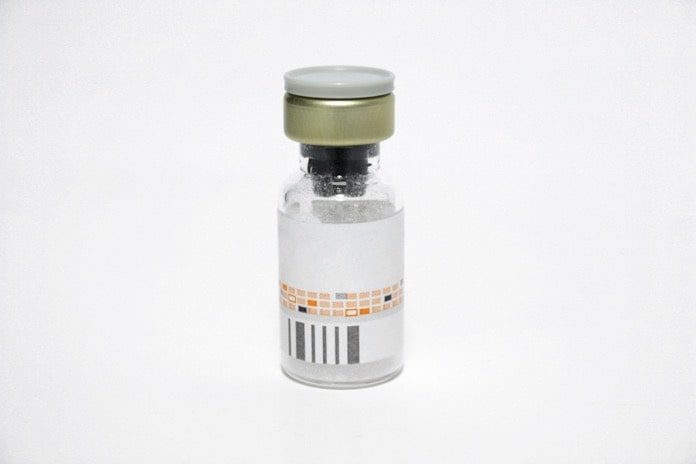Over the last decade, vaccines for the prevention of the meningococcal disease have become available. A recent study evaluated the cost-effectiveness of universal administration of the meningitis vaccine in college students.
Meningococcal disease is an infection caused by the Neisseria meningitidis bacteria. Six strains of this bacterium cause the meningococcal disease in humans. Neisseria meningitidis serogroup A, C, W, and Y infections have been successfully controlled through vaccination programs.
New meningitis vaccine recommended for common form of meningitis
The serotype B infection is now the most common form of the meningococcal disease in humans. Young adults, between 16 and 23 years old, are the most susceptible to Neisseria meningitidis serotype B infection. The new meningitis vaccine is recommended for the prevention of the serogroup B meningococcal disease. It is unknown whether the benefits of vaccination for the serogroup B meningococcal disease outweigh the high costs.
Researchers from the Johns Hopkins University School of Medicine in the United States designed a cost-effectiveness study to evaluate the benefits of a universal vaccination program for preventing the meningococcal disease. The authors created a decision tree to assess the cost-effectiveness of a universal vaccination program in college-aged students entering a university program.
The model assumed a four-year US-based college made up of 5000 students, faculty, and staff. Each student was assumed to have the same risk for infection with Neisseria meningitidis serotype B. A suspected outbreak, which involved only one confirmed case of meningococcal disease, triggered the universal vaccination program. The researchers aimed to demonstrate the cost-effectiveness of a universal vaccination program compared with the current standard of care where patients decide whether or not to get vaccinated. The results of this study were published in the American Journal of Preventative Medicine.
Considering health and societal perspectives
Both the health sector and societal perspectives were considered in the cost-effectiveness analysis. Health sector perspectives included direct medical costs due to illness (hospitalization and vaccine and drug costs). Societal perspectives included loss of productivity from death and disability due to brain damage, hearing loss, or amputation.
The quality-adjusted life years measure was used in this analysis to quantify the health status of the group of college students. This measure adjusts life expectancy with the quality of life. A year of perfect health is equivalent to one quality-adjusted life year. According to experts, a willingness-to-pay threshold of $150,000 per quality-adjusted life year is widely accepted in the United States.
A universal vaccination program would not be cost-effective for young adults
The results of the analysis demonstrated that from a health sector perspective and a societal perspective, a formal universal vaccination program for preventing the meningococcal disease is not cost effective for young adults.
Vaccinating each student entering college would cost over $300,000. If an outbreak occurred on one campus, a universal vaccination program would cost over 2.5 million dollars. The researchers calculated that the incremental cost per quality-adjusted life year with a universal vaccination program would be 13.9 million dollars under the health sector perspective and 13.8 million dollars under the societal perspective. These numbers are vastly over the threshold of $150,000 society is willing to pay to improve their health and quality of life.
Low rates of new cases
Although meningococcal disease is most common in young adults, the rates of new cases are low. The efficacy of the meningitis vaccine also decreases over time. Over a four-year term, the universal vaccination program would drop the number of cases of meningococcal disease per mid-sized campus from 9.2 cases per 1000 campuses to 4.6 cases per 1000 campuses. If 100,000 young adults are vaccinated, fewer than five cases would be prevented. The health benefits of the meningitis vaccine are limited.
There are also limitations to the study design. The population in the study did not assume any students had increased risks of catching the meningococcal disease. The results cannot be generalized to the population. Also, it is unknown whether the meningitis vaccine is recommended for preventing the disease following an outbreak.
Current standard of care is the most cost-effective strategy
In conclusion, routine administration of the meningitis vaccine in young adults is not a cost-effective program. The low rates of new cases of the meningococcal disease, the limited efficacy, and the high costs of the meningitis vaccine prevent the universal vaccination programs from being a cost-effective strategy. Considering the current willingness-to-pay threshold and the current price of the meningitis vaccine, the current standard of care, which involves individual decisions to receive the vaccine, is the most cost-effective strategy.
Written by Jessica Caporuscio, PharmD
References:
- Leeds IL, Namasivayam V, Bamogo A, et al. Cost Effectiveness of Meningococcal Serogroup B Vaccination in College-Aged Young Adults. Am. J. Prev. Med. 2018.
- Johns Hopkins Medicine Newsroom. Study Suggests Universal Meningitis Vaccination Is Not Cost-Effective For College Students. The Johns Hopkins University. 2018.
- Centers for Disease Control and Prevention. Serogroup B Meningococcal (MenB) VIS. US Department of Health and Human Services. 2016. URL: https://www.cdc.gov/vaccines/hcp/vis/vis-statements/mening-serogroup.html
- GlaxoSmithKline Inc. Product Monograph. Bexsero. 2018. URL: https://ca.gsk.com/media/1212390/bexsero.pdf
- Bush, LM. Schmidt CE, Perez MT. Meningococcal Disease. Merck Manual Professional Version. 2018. URL: https://www.merckmanuals.com/en-ca/professional/infectious-diseases/gram-negative-cocci-and-coccobacilli/meningococcal-diseases



